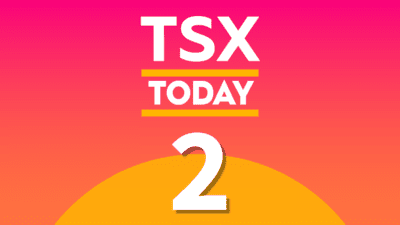BlackBerry (TSX:BB)(Nasdaq:BBRY) shares had some ups and downs last week, closing at $10.20, the same as its opening price on February 18.
What happened? First, Facebook (Nasdaq:FB) bought WhatsApp, which suggests there is value for BBM (BlackBerry Messenger). Second, BlackBerry is moving to monetize BBM in the simplest way possible: through a shop that offers digital “stickers” for purchase. Stickers are an extension of emoticons that users can buy and then send to contacts in BBM. They may sound trivial, but the new BBM Shop offers a potentially attractive new revenue stream.
WhatsApp boosts BBMs relevance
Facebook’s generous but necessary move to acquire WhatsApp for a net $19 billion boosted BBM’s value for BlackBerry shareholders. According to JANA Mobile, WhatsApp’s largest market is in developing countries, which include Kenya, Nigeria, and South Africa. Brazil and Mexico are also big markets for WhatsApp.
A quick calculation suggests that since Facebook paid $19 billion for 450 million users, or $42 per user, BBM was therefore worth $3.4 billion (on around 80 million users) in October 2013. With BBM available on iOS and Android, the user base could be more than 100 million users, or $4.2 billion. But the simple calculation is flawed: Facebook has advertising revenue from mobile that will more than compensate for this acquisition over time.
BlackBerry needs to be cash-flow positive in its core smart phone business in the enterprise. Its shrinking consumer market needs to stabilize its share price. BlackBerry also offset device launch risks to Foxconn, so even if sales for new devices are low, losses will be minimal. With lower development costs, a Q30 (codenamed ‘Windermere’) in 2014 could still help BlackBerry’s bottom line.
High profit margin with BBM Shop
BlackBerry is signaling that it is not entirely uncommitted to the consumer market as it doubles down its focus on enterprise customers. The BBM Shop concept is clever: BBM users can download stickers in-app. Sales would have a high profit margin, since they are virtual products that are sold in varying package size sets ranging from $0.99 to $5.99. Users also have numerous characters to choose from.
As the user base grows, the revenue would too. Making BBM available on Nokia X and on Windows Phone also helps grow the user base globally. Since costs would not grow proportionately to sales, the business model is clearly scalable.
Forward multiples compared
Facebook has Messenger and now WhatsApp. Google (Nasdaq:GOOG) has Hangouts. Microsoft (Nasdaq:MSFT) owns Skype, while Sina (NASDAQ:SINA) runs Weiyou. Except for Microsoft, the forward price of profit (forward P/E) for these firms are 28 and above.
| Company | Forward P/E |
| BlackBerry | N/A |
|
28 |
|
|
Over 70 |
|
| Microsoft |
14 |
| Sina |
57 |
Data Source: Kapitall.com
Foolish bottom line
BlackBerry still has lots of bugs that need to be fixed on BBM for Android/iOS. Profile pictures still display as low quality, and BBM performance is still lagging on these devices. BBM Channels has yet to prove its value for content sharing.
WhatsApp gave BlackBerry shares a temporary boost, but the company is still transitioning its business. Its decision to monetize BBM is low risk, and will ultimately contribute positively to the firm’s brand name and its bottom line.







